The time for choosing is fast approaching for Theresa May. Soon she must make a decision that will define her premiership and her country’s future. The past few days have shown how hard, if not impossible, it will be for her to keep her entire cabinet on board with whatever EU deal she signs. It is imperative that she now picks what kind of Brexit she wants. But doing so will risk alienating — or even losing — various cabinet members. She has been trying to blur the lines for months, but as one of those closely involved in this drama warns: ‘She can’t fudge this forever.’ Another participant in the struggle says: ‘She’s got to decide who she wants sitting round the cabinet table.’
Mrs May had planned to reveal the next part of her Brexit plan in her speech in Florence, but the political tussle started long before she left for Italy. We have seen the Foreign Secretary defying his boss, then being attacked by the Home Secretary, while Brexiteer cabinet ministers were forced to deny that they had agreed to resign en masse. Yet these are merely the opening skirmishes in the latest battle of the Tories’ 50-odd-year civil war over Europe. The Brexit referendum did not settle this question; it just redefined it. This battle now threatens to be the bloodiest.
The cabinet is split between those who want to stay as close as possible to the EU single market, copying regulations and transposing European Court judgments where necessary, and those who want to chart a more independent course and go for a free-trade agreement with the EU based on the one recently struck by Canada. A basic (and reasonable) question hangs in the air: what does Britain want? Yet the government has managed three rounds of Brexit talks with the EU without saying which is its preferred option.
This is not a clever negotiating tactic borne out of a desire to keep Brussels guessing. Rather, it is a consequence of the government not knowing the answer. It might seem remarkable, incredible even, that more than a year after the referendum and almost six months after Article 50 was triggered, the cabinet cannot agree. But it is true. Barely a week ago a ministerial meeting about the Florence speech broke up without agreement because Michael Gove had concerns about the ‘end state’ that it indicated. No one in the cabinet disputes that Britain must leave the EU single market. Free movement of people — the price of single market membership — is out of the question after the Brexit vote. But a close second to single market membership is being proposed. This would involve Britain ending free movement, but doing everything else it can to stay in regulatory alignment with the EU’s internal market: what one cabinet minister calls EEA-minus (meaning European Economic Area). Britain would have something close to internal market membership on condition that it would not diverge from the EU on an issue without prior agreement.
To Brexiteers inside government, this removes one of the main points of leaving: the chance to chart a different course on issues such as the economy and technological and medical research. One laments: ‘They’ll have us over a barrel for ever more. It is the opposite of taking back control.’ Critics complain that this plan ‘is coming from a place of trying to keep everything the same as far as possible’. They fear Brexit might not mean Brexit after all.
But the EEA-minus crowd — led by Chancellor Philip Hammond and Cabinet Secretary Jeremy Heywood (one thing that Brexit should explode is the myth that the civil service are impartial actors) — are the ones with their tails up. Talking to keen Brexiteers in the past few days I have sensed an immense nervousness about where things are going. There is a general feeling that they are being successfully cast as zealots and are losing the internal argument. By contrast, the cabinet ministers pushing for EEA-minus (who voted Remain) are upbeat. One predicts: ‘That’s where we’ll end up. Not in but very close.’ They believe that civil servant Olly Robbins’s move from the Brexit department to No. 10 should help secure that shift. One senior Brexit department figure tells me: ‘Olly Robbins and Treasury civil servants are in favour of EEA-lite’. That’s why those pushing for this course are so delighted that Robbins is working for May. They believe his presence, and his close relationship with the Prime Minister (they worked together at the Home Office), will help steer her down this path.
The EEA-minus crowd hope that the Florence speech will advance their agenda. One says this is a ‘crunch week’. They believe that if Boris Johnson goes to Florence ‘he’s dipped his hand in the blood’ and it will be impossible for him to resign over Brexit — at least with any credibility. But those close to the Foreign Secretary believe that his very public intervention against EEA-minus, in the form of his 4,000-word article for the Daily Telegraph a week ago, will have helped constrain the Prime Minister. His declaration that Britain should not pay for access to the single market and should enjoy ‘regulatory freedom’ after Brexit, is seen by his allies as making it ‘harder for him… but it also makes it harder for her to go as far as Hammond wants’.
Boris had become fed up at being cut out of the picture: not invited to key meetings and not allowed to use his talents properly. The last straw was what one source close to him describes as a ‘sneak attack’ while he was out of the country earlier this month. On Monday 11 September, No. 10 emailed various cabinet ministers asking them to hold a time two days later for a meeting with the Prime Minister without saying what the meeting was about. The Foreign Office said Boris would not attend, as he would be in the Caribbean inspecting hurricane damage. Then No.10 said the meeting was about Brexit. But still no indication was given about its crucial importance.
Michael Gove was invited. But, as No.10 would have known, he is much more relaxed about the terms of transition than the Foreign Secretary. Unlike Boris, he’s been comfortable for a while about making member-state-sized budget contributions to the EU during this period. Why? Because he is sceptical of the civil service’s ability to get the bureaucracy ready for leaving in March 2019, and so doesn’t regard a two-year transition as a particularly bad thing.
To Boris, the cash matters. He was furious when he was briefed on the plans for the Florence speech, as he remains determined to honour his pledge to ‘take back control’ of £350 million a week. If the UK pays into the EU as normal during any transition, there will be no extra cash available for the NHS, or any other public service. This would severely hamper any Johnson leadership bid when May steps down. His opponents would say: we’ve left the EU, Boris, where’s the money?
This is a particularly sensitive point for Boris because ever since the referendum his internal critics have been warning Tory MPs that the £350 million line is the equivalent of Nick Clegg’s tuition fees pledge: an unforgivable act of perfidy in the eyes of the public. As one of those who will be involved in any Johnson leadership bid says: ‘He needs to detoxify himself with that money.’ When Boris was told he couldn’t deliver a speech ahead of May’s visit to Florence, he went public — and repeated the £350 million figure. He pointedly made no reference to transition, and suggested that the money the UK sends to the EU would come back straight after Brexit.
In recent days, he has calmed down. I’m told he could ‘live with the transition’ but as long as the Prime Minister makes clear that it will be followed by ‘a complete, clean break’ with the EU. On this point, Gove agrees. He is concerned about any system in which the UK would have to keep mirroring the single market in the entire economy rather than just being EU-export compliant.
One friend of Gove’s says that the role of the European Court of Justice is crucial. May has previously said she will not accept its writ. But what Gove worries about is the UK being bound by the ECJ indirectly, and forced to copy its judgments in some way. ECJ rulings are not always in this country’s best interests, as Marina Wheeler explains on page 14.
If opposition to some kind of EEA-minus deal is the hill on which Boris chooses to fight, others will back him. One minister stresses that if May goes down that route it would be ‘very danger-ous for her’. To date, she has been supported by the 80-odd Tory MPs who are belong to the European Research Group, which campaigns for a clean Brexit. But they would turn on her if it looked as if Britain would be made to march in lockstep with the EU’s regulatory framework.
May has three problems. She is sincere in her desire for a deal that respects the referendum result, so a lot of energy will be focused on trying to persuade her that an EEA-minus deal fulfils this function. Its advocates argue that it does so because free movement would end. Dissenters say — with some justification — that it does not, because this country would not be ‘taking back control’ in any meaningful sense.
The next issue is whether the UK could walk away without a deal. May famously said that ‘no deal is better than a bad deal’. But there is growing concern in government that preparations for ‘no deal’ are so inadequate that the UK couldn’t actually do that. I understand that civil servants in David Davis’s Department for Exiting the European Union have taken to writing emails setting out the problems, chiefly to ensure that their backs are covered should any Chilcot-style inquiry look into what went wrong. The chances of ‘no deal’ may be as low as one in five. But even that should demand a level of preparation that is simply not happening.
Some even suspect that Sir Jeremy Heywood is relaxed about the lack of planning for a ‘no deal’ scenario because he thinks this means the government won’t walk away without one. One Tory Eurosceptic complains: ‘We prepared for the millennium bug, we stockpile vaccines for bird flu and all sorts of epidemics. So, why aren’t we preparing for “no deal”?’ It is a good question and makes you wonder whether it is incompetence, complacency — or a more cynical desire to rule out this option out by stealth.
Then we come to the third issue: one that the British Brexit debate too often forgets: there is another side in this negotiation. Even if May is persuaded to hug Europe close, the EU may have other ideas. One figure who has the ear of Davis at the Department for Exiting the European Union says: ‘EEA-lite is a non-starter as the EU won’t accept it without free movement’, which the referendum took off the table. If this is the case, it will render much of the governmental discussion of the past few weeks irrelevant.
Europe has destroyed the past three Tory prime ministers. After the referendum, one figure turfed out with David Cameron said that at least it would stop the Conservatives banging on about Europe. Instead, the fight is intensifying as the endgame approaches. Whatever deal May agrees will be a compromise, both within her own party and with the EU itself. To the Remainers, the deal won’t be as good as membership, while the Brexiteers will have to admit that the new arrangement does not take back as much control as they would like. So, the 50-year Tory civil war over Europe continues.
The battleground will be how much Britain should diverge from the EU and chart its own course in the world. This might not turn into the Tories’ own Hundred Years’ War. But it would be no surprise if it did for another three Tory prime ministers before it is finally over and done with.
Got something to add? Join the discussion and comment below.
Get 10 issues for just $10
Subscribe to The Spectator Australia today for the next 10 magazine issues, plus full online access, for just $10.
You might disagree with half of it, but you’ll enjoy reading all of it. Try your first month for free, then just $2 a week for the remainder of your first year.


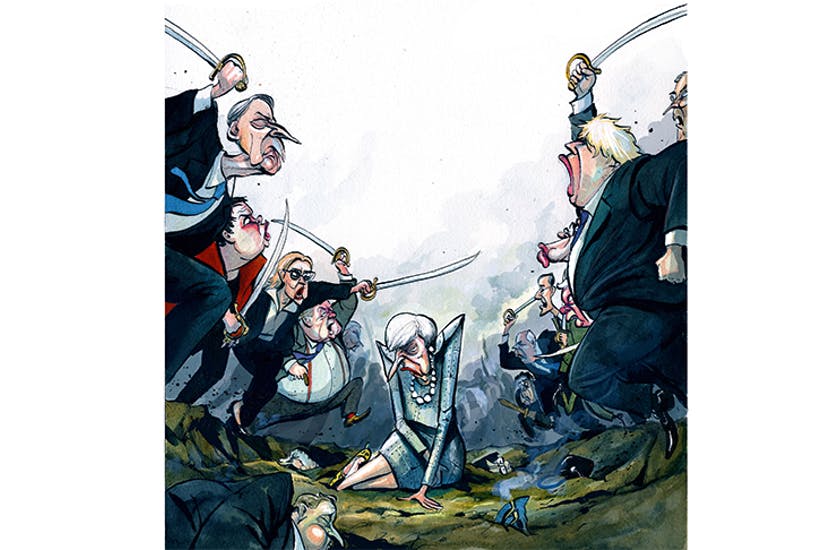
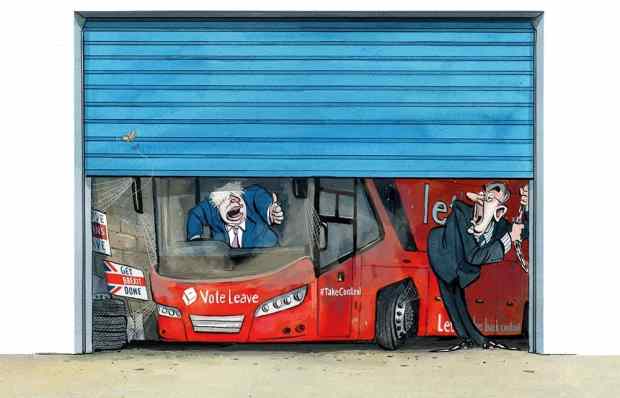

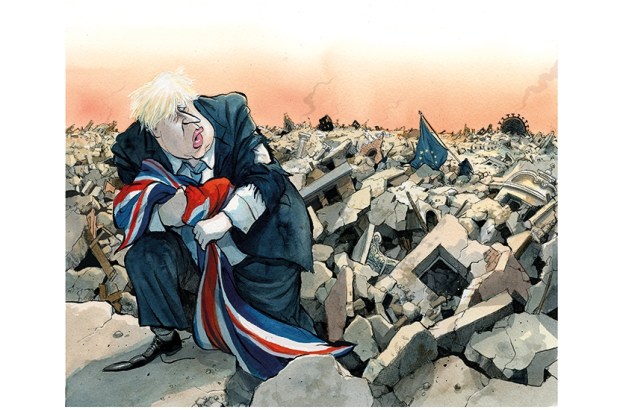
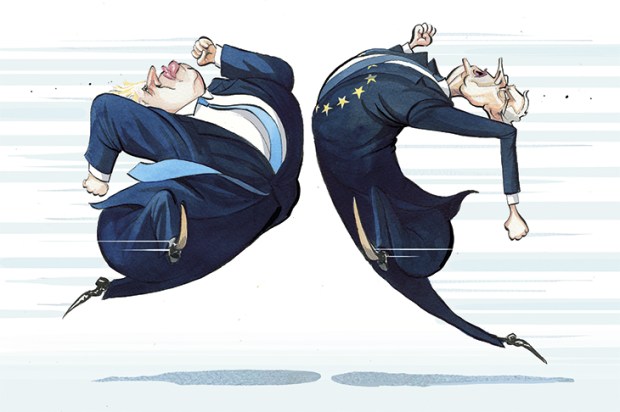
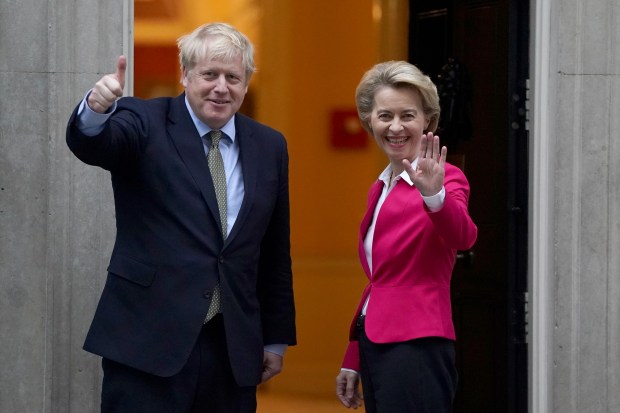
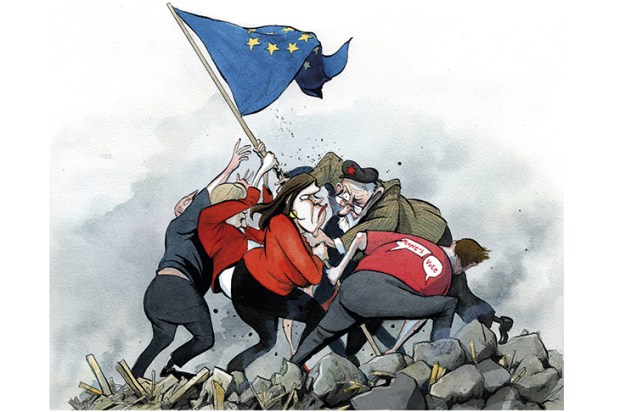






Comments
Don't miss out
Join the conversation with other Spectator Australia readers. Subscribe to leave a comment.
SUBSCRIBEAlready a subscriber? Log in